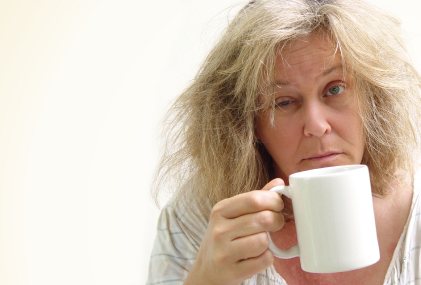Fatigued. Exhausted. Lethargic. Pooped. Chances are you have been tired during the middle of your day at some point in the last few months. This can occur more often with a busier schedule or a more stressful time. And while a cup of coffee may be your first option for quick energy, there are other ways to boost energy without caffeine.
Caffeine is widely found in coffee, soda, energy drinks, and other drinks and is often enjoyed for its ability to help increase alertness, focus, and energy. However, what you may not realize is that caffeine can also contribute to dehydration. When consumed in excess amounts, caffeine can act as a diuretic, causing the body to expel more water than it takes in.
This can lead to dehydration and other health problems, such as headaches, fatigue, dizziness, and irritability. So while caffeine may provide short-term benefits, it’s important to be mindful of how much you’re consuming–especially after a bariatric procedure. Dehydration is one of the most common issues after surgery.
Ways to Boost Energy Without Caffeine
The first tendency is to grab another cup of coffee/tea/soda/name your poison–but that’s not always the best option. Here are a few ways to boost energy without caffeine, especially after a bariatric procedure:
- Get up and MOVE
- Blast your favorite song
- Drink more water
- Take a power nap
- Improve your diet
- Breath in, breath out
- Get some shut-eye
Get up and MOVE
Low-intensity exercise (like walking and biking) has been proven to improve the feeling of fatigue on a short-term and long-term basis. In fact, The American Council for Exercise research showed that people reported a 65% drop in fatigue after walking for 20 minutes. Adding a few stretches throughout the day can be beneficial to get your blood moving and improve your energy level as well.
Exercise helps to deliver oxygen throughout the body, increasing alertness and focus while reducing fatigue. Exercising outdoors has been shown to be particularly beneficial since being exposed to natural sunlight helps your body create vitamin D which can significantly reduce feelings of exhaustion. Even something relatively simple like taking a brisk walk helps you remain energized throughout the day.
Blast your favorite song
Playing music can not only revive you in an afternoon slump but it has also been linked to the reward center in your brain. The moral of the story, turn on Spotify not only to feel energized but also happy!
Drink more water
Water, water, water. It is vital for your body, and without it, your body cannot function properly. Your energy level is one of the first things to go when fluid is scarce. So if you are feeling chronic fatigue daily, skip dehydrating beverages and reach for some good ol’ water throughout the day or other caffeine-free drinks. Your body will thank you.
Take a power nap to boost energy without caffeine
Who doesn’t like to take the occasional nap? Studies show that a short 10-20 minute power nap can boost productivity and energy levels in the afternoon. But do not nap the day away–longer naps can throw off sleep cycles and end up leading to more fatigue.
Improve your diet
One of the best ways to beat fatigue without caffeine is to focus on nutrition. Eating a balanced diet rich in proteins, vitamins, and other nutrients will give your energy levels a much-needed boost. Nutrient-dense foods like Greek yogurt, eggs, chia seeds, leafy greens, and fish contain essential vitamins and minerals that can provide sustained energy throughout the day.
Breath in, breath out
People can naturally increase their energy through breathing exercises. Taking some time during the day for deep breathing or meditation can help clear your mind of any distractions or stressors that may be draining your mental energy reserves. The calming effect of deep breathing exercises will help you better manage your stress levels so that you have more mental energy available when needed.
Get some shut-eye
While a power nap will help reenergize your body, getting enough uninterrupted sleep in the first place is a great way to keep you alert during the day. Most adults need between 7-9 hours of quality sleep each night in order to function optimally. Make sure that you’re getting enough restful sleep every night if you want long-term sustainable energy levels–as well as other health benefits–during waking hours.
Why Finding Ways to Boost Energy Without Caffeine is Important
The whole point of this blog is to avoid caffeine in the first place, but we thought we’d give you some reasons why. Drinking a lot of caffeine can come with several side effects, including headaches, jitters, and insomnia. Caffeine is a stimulant, so drinking too much can interfere with sleep patterns and lead to increased anxiety, irritability, heart palpitations, and the feeling of being “wired” or on edge.
It can also increase blood pressure, contribute to dehydration, and in some cases, cause an unhealthy dependence. It’s important to be mindful of your caffeine intake and listen to your body for signs that you may be drinking too much. If you feel jittery or anxious after consuming caffeinated drinks, this could be a sign that you should reduce your intake.
Remember that everyone has different sensitivities to caffeine and it is important to find what works best for you. Moderation is key when it comes to caffeine consumption and in fact, we advise you to avoid caffeine entirely for at least 30 days after bariatric surgery. If you absolutely must have a cup of joe during the day, grab a mug of decaf.
What are some non-caffeinated ways you have found to boost your energy? Comment below.

